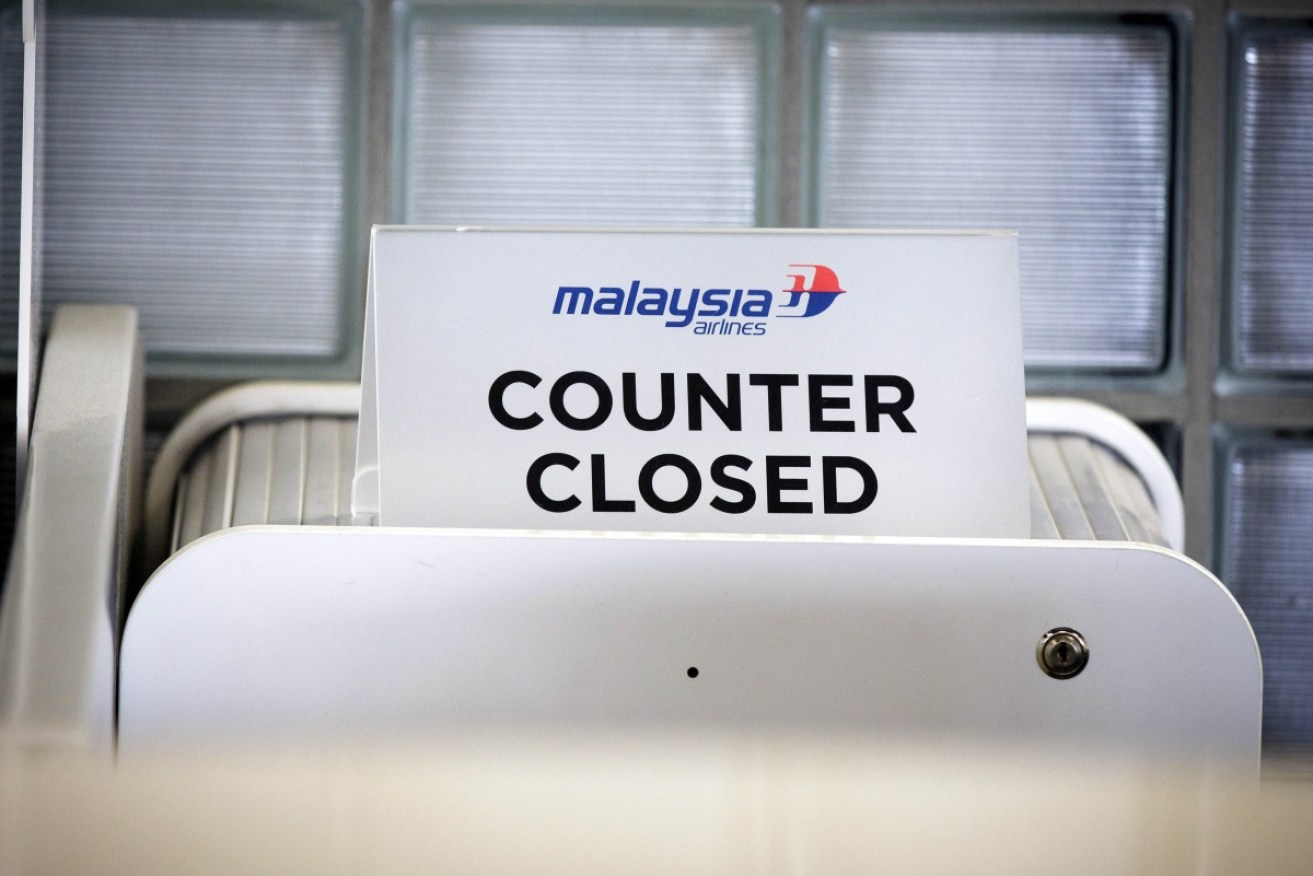As speculation abounds as to who or what downed Flight MH17, what is certain is that the struggling airline, already reeling from the disappearance from MH370, is in serious trouble.
This is second disaster this year for Malaysian Airlines.
There is no precedent, said John Cox, president and CEO of Safety Operating Systems and a former airline pilot and accident investigator.
“Either one of these events has an unbelievably low probability,” Mr Cox told AAP.
• EXPLAINER What happened to MH17?
• Malaysia Airlines plane shot down by rebels: report
• Fears for 27 Australians on board MH17
• GALLERY Images from the crash site
• VIDEO Witnesses capture vision of plane crashing, Abbott speaks
“To have two [events] in just a few months of each other is certainly unprecedented,” he said.
Neil Hansford, aviation analyst at Strategic Aviation Solutions, agreed that Malaysian Airlines was extremely unlucky.
“It could have been any other of another 200 or 300 aircraft,” Mr Hansford told The New Daily.
The first disaster, Flight MH370, deeply scarred the jetliner.
On March 8, it vanished about an hour after taking off from Kuala Lumpur, spawning an international mystery that remains unsolved.
Flight 370 had veered off course during a flight to Beijing and is believed to have crashed in the Indian Ocean far off the western Australian coast.
The search area has changed numerous times, to no avail. No sign of the aircraft or the 239 passengers on board has been found.
MH17 just happens to be the same type of aircraft, a Boeing 777-200ER, as the earlier missing flight.

A Malaysian airlines jet. Photo: AAP
Can the airline recover from this double blow?
Financially the double tragedy has had a significant effect on the airline.
Shares in Malaysian Airlines have taken a massive hit, dropping almost 18 per cent.
The firm fell 17.8 per cent to 0.185 ringgit at one point in morning trade on the Kuala Lumpur stock exchange, before recovering some of those losses to set 13 per cent lower.
Combined with the airline’s perennial losses, the MH370 debacle has pummelled its shares in 2014. It has lost more than a third of its value since January 1.
The latest crash worsens the carrier’s outlook, said Mohshin Aziz, research analyst at Maybank Investment Bank.
“In the history of aviation … there’s never been an airline that had to go through two huge disasters in the span of four months, so I don’t think there’s any historical evidence that they can get out of this,” he told Dow Jones Newswires.
Mr Hansford told The New Daily that this could be the end of the airline.
“Based on their poor financial history, this could be fairly terminal, even if the Malaysian Government wants to keep throwing money at it,” Mr Hansford said.
According to Mr Hansford, the airline has been in the process of trying to buy back the privately held 50 per cent of its shares in order to effect a refinance or to seek investment from another carrier, in order to staunch its heavy financial losses – which predate both disasters.
Even before the March disaster, the airline reported losses because of stiff competition from budget airlines. After the MH370 disaster passengers cancelled flights. Even though the airline is insured, it faces uncertainty over payouts to the victims’ families.
“In all of my time in the industry, those who’ve run airlines, we all say that you’re only as good as your next accident,” Mr Hansford said. “I think this is just one step too far.”
Malaysia Airlines was widely criticised for the way it handled the Flight 370 hunt and investigation. Some relatives of those on board accused the airline of engaging in a cover-up and there have been persistent conspiracy theories over the fate of the plane, including that it might have been shot down.
Malaysia Airlines was especially criticised for the way it handled the communications around the missing jetliner, which presented unique challenges because of the uncertainty facing the relatives of those on board.
Charles Oman, a lecturer at the department of aeronautics and astronautics at the Massachusetts Institute of Technology, told AAP that he hoped the airline had learned from the previous disaster.
“The airline and the Malaysian transport ministry took a lot of hits for the way they handled MH370, due to their inexperience,” Mr Oman said. “Hopefully they will do better this time.”
The MH17 disaster is the second highest Australian death toll in an overseas disaster, after the Bali bombings. So far, there are presumed to be 27 Australian casualties. The wreckage has been found, with none of the 238 passengers and crew found alive.
—with AAP









